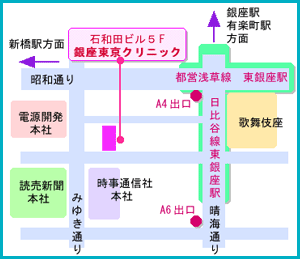ケトン食は酸化ストレスを高めて肺がんの放射線化学療法の効果を高める
ケトン食は酸化ストレスを高めて肺がんの放射線化学療法の効果を高める
Ketogenic diets enhance oxidative stress
and radio-chemo-therapy responses in lung cancer xenografts.(ケトン食は移植肺がんの実験モデルにおいて、酸化ストレスと放射線化学療法の奏功率を高める)Clin Cancer Res. 2013 Jul 15;19(14):3905-13.
【要旨】
目的:ケトン食は脂肪が多く、糖質とタンパク質が少ない食事で、細胞のエネルギー(ATP)供給源を解糖系からではなく、脂肪酸の酸化とミトコンドリアでの呼吸によるATP産生を強制する食事である。
正常細胞に比べてがん細胞は、ミトコンドリアでの代謝によって慢性的な酸化ストレスの状態にあると考えられている。本研究では、移植肺がんの動物実験モデルを用いて、「ケトン食が酸化ストレスを高めることによって放射線化学療法(radio-chemo-therapy)の奏功率を高める」という仮説を検証した。
実験方法: NCI-H292とA549の2種類の肺がん細胞株を移植したマウスを通常食かケトン食(脂肪:タンパク質+糖質のカロリー比が4:1)で飼育し、通常の分割照射(1回1.8〜2グレイ)か少分割照射(1回6グレイ)か通常の分割照射にカルボプラチンを併用した治療を行った。
マウスの体重と腫瘍のサイズを測定した。腫瘍組織の酸化ストレスのレベルは過酸化脂質生成物のヒドロキシノネナールで修飾されたタンパク質の量で、細胞増殖の程度はPCNA(proliferating cell nuclear antigen:増殖性細胞核抗原)の量で、DNAダメージの程度はリン酸化ヒストンH2AX(γH2AX)の量で、それぞれ評価した。
結果:NCI-H292細胞とA549細胞を移植したマウスの両方において、放射線治療単独群に比べて、放射線治療とケトン食を併用した群の方が、腫瘍の増殖速度はより低下した(P < 0.05)。
放射線治療とカルボプラチンの化学療法を併用した場合も、ケトン食を与えた群の方が通常食(コントロール)群より腫瘍の増殖速度が低下した。放射線治療とケトン食を併用したマウスの腫瘍組織では、ヒドロキシノネナールで修飾されたタンパク質の量で測定される脂質酸化による酸化障害の程度が高く、PCNAの免疫染色で評価される細胞増殖のレベルは低下した。
結論:これらの実験結果は、肺がんを移植したマウスの実験系において、ケトン食は酸化ストレスを高めることによって、放射線化学療法の効果を高めることを示している。
【原文】
Clin Cancer Res. 2013 Jul 15;19(14):3905-13. doi:
10.1158/1078-0432.CCR-12-0287. Epub 2013 Jun 6.
Ketogenic diets enhance oxidative
stress and radio-chemo-therapy responses in lung cancer xenografts.
Allen BG, Bhatia SK, Buatti JM, Brandt KE, Lindholm KE, Button AM, Szweda LI, Smith BJ, Spitz DR, Fath MA.
Source
Authors' Affiliations: Free Radical
and Radiation Biology Program, Department of Radiation Oncology, Holden
Comprehensive Cancer Center and Department of Biostatistics, College of Public
Health, The University of Iowa, Iowa City, Iowa; and Oklahoma Medical Research
Foundation, Oklahoma City, Oklahoma.
Abstract
PURPOSE:
Ketogenic diets are high in fat and
low in carbohydrates as well as protein which forces cells to rely on lipid
oxidation and mitochondrial respiration rather than glycolysis for energy
metabolism. Cancer cells (relative to normal cells) are believed to exist in a
state of chronic oxidative stress mediated by mitochondrial metabolism. The
current study tests the hypothesis that ketogenic diets enhance
radio-chemo-therapy responses in lung cancer xenografts by enhancing oxidative
stress.
EXPERIMENTAL DESIGN:
Mice bearing NCI-H292 and A549 lung
cancer xenografts were fed a ketogenic diet (KetoCal 4:1 fats:
proteins+carbohydrates) and treated with either conventionally fractionated
(1.8-2 Gy) or hypofractionated (6 Gy) radiation as well as conventionally
fractionated radiation combined with carboplatin. Mice weights and tumor size
were monitored. Tumors were assessed for immunoreactive
4-hydroxy-2-nonenal-(4HNE)-modified proteins as a marker of oxidative stress as
well as proliferating cell nuclear antigen (PCNA) and γH2AX as indices of
proliferation and DNA damage, respectively.
RESULTS:
The ketogenic diets combined with
radiation resulted in slower tumor growth in both NCI-H292 and A549 xenografts
(P < 0.05), relative to radiation alone. The ketogenic diet also slowed
tumor growth when combined with carboplatin and radiation, relative to control.
Tumors from animals fed a ketogenic diet in combination with radiation showed
increases in oxidative damage mediated by lipid peroxidation as determined by
4HNE-modified proteins as well as decreased proliferation as assessed by
decreased immunoreactive PCNA.
CONCLUSIONS:
These results show that a ketogenic
diet enhances radio-chemo-therapy responses in lung cancer xenografts by a
mechanism that may involve increased oxidative stress. Clin Cancer Res; 19(14);
3905-13. ©2013 AACR.
< 前の記事「 漢方治療(中医薬治療)は肺がんの抗がん剤治療の効果を高める 」 | ホーム | 次の記事「 メトホルミンは直腸がんの化学放射線療法の効き目を高める 」 >






